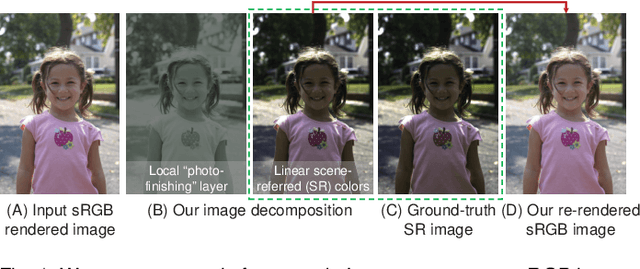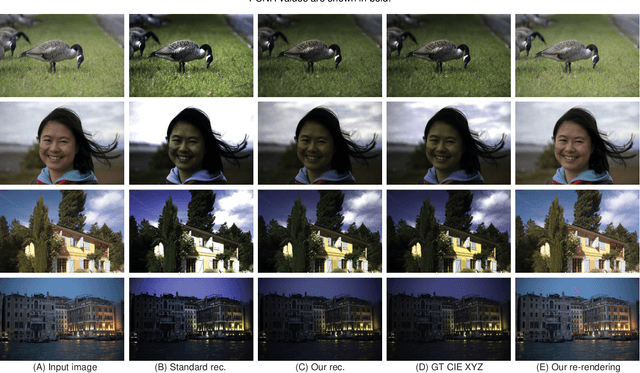CIE XYZ Net: Unprocessing Images for Low-Level Computer Vision Tasks
Paper and Code
Jun 23, 2020



Cameras currently allow access to two image states: (i) a minimally processed linear raw-RGB image state (i.e., raw sensor data) or (ii) a highly-processed nonlinear image state (e.g., sRGB). There are many computer vision tasks that work best with a linear image state, such as image deblurring and image dehazing. Unfortunately, the vast majority of images are saved in the nonlinear image state. Because of this, a number of methods have been proposed to "unprocess" nonlinear images back to a raw-RGB state. However, existing unprocessing methods have a drawback because raw-RGB images are sensor-specific. As a result, it is necessary to know which camera produced the sRGB output and use a method or network tailored for that sensor to properly unprocess it. This paper addresses this limitation by exploiting another camera image state that is not available as an output, but it is available inside the camera pipeline. In particular, cameras apply a colorimetric conversion step to convert the raw-RGB image to a device-independent space based on the CIE XYZ color space before they apply the nonlinear photo-finishing. Leveraging this canonical image state, we propose a deep learning framework, CIE XYZ Net, that can unprocess a nonlinear image back to the canonical CIE XYZ image. This image can then be processed by any low-level computer vision operator and re-rendered back to the nonlinear image. We demonstrate the usefulness of the CIE XYZ Net on several low-level vision tasks and show significant gains that can be obtained by this processing framework. Code and dataset are publicly available at https://github.com/mahmoudnafifi/CIE_XYZ_NET.
 Add to Chrome
Add to Chrome Add to Firefox
Add to Firefox Add to Edge
Add to Edge